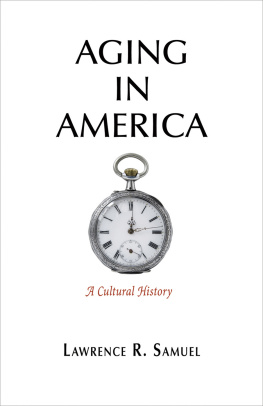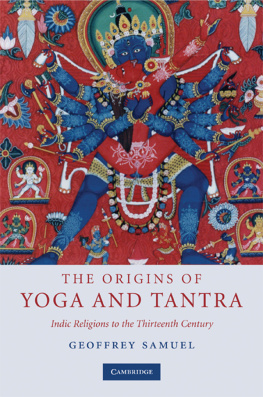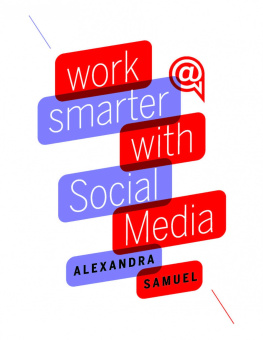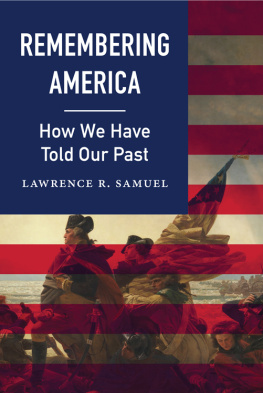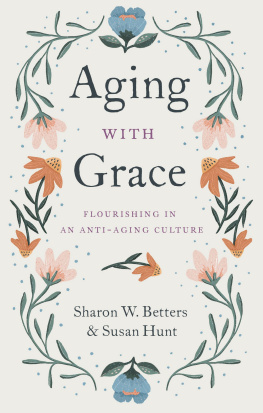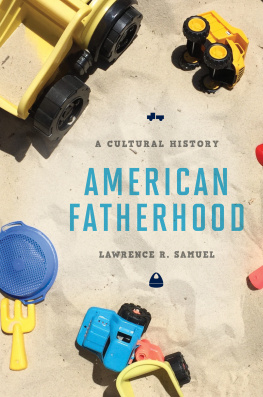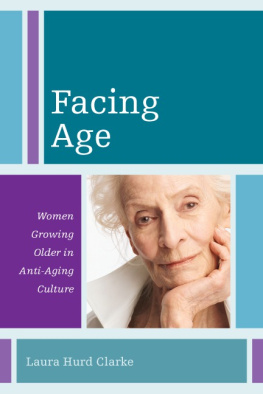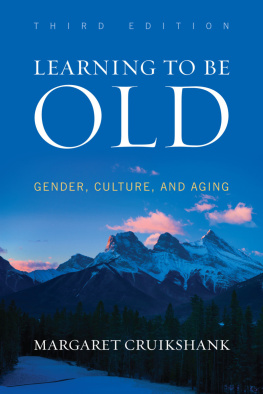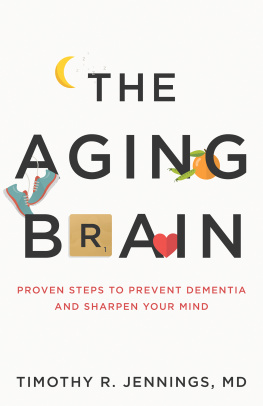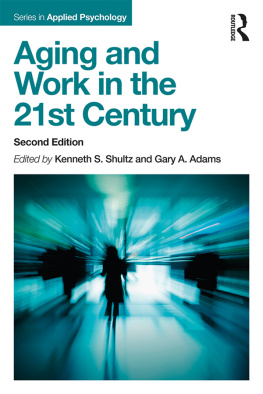
Aging in America
Aging in America

A Cultural History
Lawrence R. Samuel
PENN
UNIVERSITY OF PENNSYLVANIA PRESS
PHILADELPHIA
Copyright 2017 University of Pennsylvania Press
All rights reserved. Except for brief quotations used for
purposes of review or scholarly citation, none of this book
may be reproduced in any form by any means without written
permission from the publisher.
Published by
University of Pennsylvania Press
Philadelphia, Pennsylvania 19104-4112
www.upenn.edu/pennpress
Printed in the United States of America on acid-free paper
1 3 5 7 9 10 8 6 4 2
Cataloging-in-Publication Data is available from the Library of Congress
ISBN 978-0-8122-4883-8
What shall I do with this absurdityO heart,
O troubled heartthis caricature,
Decrepit age that has been tied to me as to a dogs tail?
W. B. Yeats, The Tower
Contents
Preface
How old is your granddaughter? the nice older woman asks me as I drop off my daughter at school. Im fifty-eight years old and my daughter is three, making it a not unreasonable question. Still, her thinking that I look more like a grandfather than a father is a bit irritating, and a completely objective reminder that I appear to others more old than young. Children too sometimes approach me at playgrounds while Im in the company of my daughter and ask if Im her daddy, a sign of how embedded perceptions about age are in our youth-obsessed society.
Like most people on the north side of middle age, I find my advancing age an annoying and surprising fact of life, wondering how and when this particular inconvenient truth crept up on me. As a typical baby boomer (of the generation born approximately between the mid-1940s and the mid-1960s), Ive naturally thought of myself as somehow always being young despite the obvious signs that prove otherwise. I shunned joining the AARP when it first approached me when I turned fifty, not wanting to be part of an organization made up of old people. (I later eagerly signed up when I learned I was missing out on some great discounts.) I pride myself on not putting much stock in a persons physical appearance, knowing its mostly a genetic dealing of the cards, but occasionally I fall victim to the self-loathing many people past the half-century mark experience when I catch a glimpse of myself in the mirror. (I often try not to look.) Exactly whose body is this? I sometimes ask myself, bewildered at how I have come to occupy this not especially attractive shell. The physical signs of aginggray and disappearing hair, need for reading glasses, spots on the skin, creaking joints, a proclivity to gain weight just by looking at food, and a host of minor ailmentsare further confirmation of my lost youth, as are the ever-growing number of meds my doctor tells me I should take to stay relatively healthy. Id like to have back my physical self from around the mid-1980s, but thats obviously not going to happen.
Conversely, however, I feel that my interior self has only improved with the years. The demons that plagued me as a young adult have largely disappeared, and I now enjoy a kind of emotional contentedness that I directly attribute to having spent more time on the planet. Call it experience, wisdom, or whatever you like, but living long enough tends to bring with it a palpable sense of well-being and satisfaction. With the compulsions of both my id and my ego mostly sated, a Freudian might say, my superego now has the ability to run free, a wonderful thing. Like many folks hovering around age sixty, I feel as though Im playing with house money, with every day a gift to be appreciated or even savored. Having a little girl to care for and a family circus to help keep running is all the motivation I need to get out of bed in the morning and, without any exaggeration at all, to try to stay alive as long as possible.
Many people at a similar stage of life are not so lucky. When I inquire, doing some informal research for this book, friends and strangers alike who are close to my age consistently tell me they have little idea what to do with the rest of their life. For them, particularly the well to do, ironically, identifying a clear meaning and purpose for their third act of life is a struggle. Their kids out of the nest and their mortgage paid, these folks no longer really have to hold nine-to-five jobs but continue to do so, not sure how else to spend the majority of their time. Golf or boating is certainly fun but hardly offers the substantive experience they require to remain happy and fulfilled individuals. Travel also is great, they add, but a life constantly on the go lacks the literal grounding that most of us need. Making more money to bestow upon children and grandchildren seems to be the primary motive in these peoples lives, a noble pursuit but with limited opportunity for personal growth and lacking any kind of spiritual component.
While considering myself fortunate to have a mission in life at this point in the game, reconciling the distancing of ones body from ones mind as one ages is, to say the least, a tricky business. I believe that physical decline and psychic evolution typically follow a parallel track as one ages, much in part due to a gradual gaining of wisdom as well as an increasing awareness that it is inevitable one will eventually die. Resolving this inverse, two-ships-passing-in-the-night relationship between ones physical being and ones psyche (barring the onset of a debilitating cognitive disease, of course) seems to me to be one of lifes most daunting challenges, but certainly one worth taking on. Ideally, the yin of the mind should connect with the yang of the body, making them complementary, dynamic forces that create a kind of synergy for an individual. I hope to do that with whatever time I have left, and by doing so become a more complete human being.
The commonality of this existential crisis is one of the primary reasons for my taking on the researching and writing of this book. In order to help lay a conceptual groundwork for the book, my working definition of aging revolves around the social, political, and economic issues surrounding the process of getting older in America, particularly after the age of fifty. A book about aging in America can be easily justified given its cultural significance and the demographic dynamics of our time and place, but I believe that any project has to speak to readers in a special way at some level. From the conversations Ive had with individuals of all stripes and from my more formal research, it is clear that aging is one of those subjects that nearly everyone can relate to in some way. My story is hardly unique, with its themes well documented in many studies of older people. More than anything else, perhaps, this book is a resource that adds valuable context to the thorny issue of aging by tracing its history over the past half century. My modest goal is to shed some additional light on the subject, and in doing so perhaps help some readers come to terms with this most fundamental and fascinating part of life.
Introduction
A ging in America: A Cultural History is, as the title makes clear, a cultural history of aging in the United States. No such book has been recently published, something surprising given the centrality of the subject in contemporary life. Much interest currently revolves around aging in America, as the tens of millions of baby boomers head into their sixties and seventies. While I spend considerable time following the trajectory of the generation born between 1946 and 1964, all Americans are somehow and necessarily involved in the story. Everyone is aging, after all, making the subject something with which we all can identify. Aging goes to the heart of individual identity, a good reason why its cultural history is a worthy venture. On a deeper level, aging goes to the essence of humanity; it is one of our very few common or even universal experiences. I am interested in stories that bring us closer together rather than push us apart, and from this perspective it is difficult to imagine a more pertinent topic, as each of us gets older every day regardless of our race, gender, or other socially defined division.
Next page
